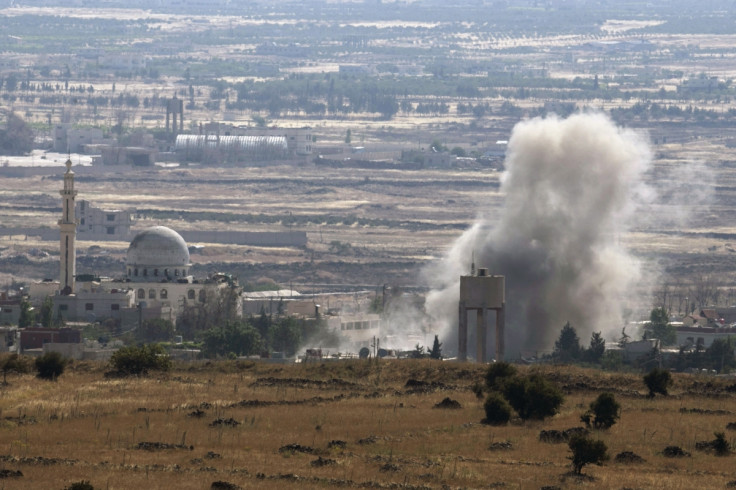Russia's Syria withdrawal: What does it mean for Israel?

Israel has always been stuck between a rock and hard place when it comes to Syria's civil war. On the one hand is Bashar al-Assad, friend of Iran and Hezbollah and avowed enemy of the Jewish state; on the other, the al-Nusra Front and Islamic State (Isis), one of them an al-Qaeda offshoot twinned with a fanatically anti-Semitic death cult committed to one day extending its caliphate to Jerusalem.
Indeed, if there is one thing that all parties in the brutal Syria conflict can agree on, it would be a hatred of Israel, which has officially been at war with Assad's regime for more than 30 years and fought Hezbollah in Lebanon as recently as 2006. The destruction of Israel is as integral to Assad's narrative when in power as it is to both al-Qaeda and Daesh, and rocket attacks from Gaza by an IS affiliate last year brought that threat close to home.
As a result, Israel's policy towards the civil war has at times seemed paradoxical: on the one hand, Tel Aviv has allegedly carried out air strikes to stop weapons shipments to Hezbollah, on the other it has coordinated with Russia as it backs Assad – and, by proxy, Hezbollah. Even as it backs Moscow, Israel has been treating anti-Assad fighters in the Golan Heights – as many as 2,000 since 2013 according to Israeli army radio.
In some ways Israel has benefited from the chaos in Syria, not least because its sworn enemy Hezbollah has been so pre-occupied fighting anti-Assad rebels that it has no time to attack the country across Lebanon's southern border. The thorny issue of the Golan Heights, Syrian territory occupied by Israel in 1967, is far down Assad's priority list as he battles to regain control of swathes of the country occupied by IS and the Nusra Front.
In other ways it has not. A victory for Assad is, by proxy, one for Iran at a time when Israel's old enemy is coming in from the cold after US President Barack Obama's and the European Union's P5 + 1 deal. Israeli Prime Minister Benjamin Netanyahu has argued that Iranian oil sales will allow Tehran to funnel money into Hezbollah's war chest, which the group could then use to attack Israel once the conflict in Syria is over.
And while Nusra Front and Isis are yet to attack Israel directly from Syria, the Sunni holy war against Assad has undoubtedly radicalised extreme elements in the Palestinian Territories and inside Israel. In 2015 there were reports that IS cells had been discovered in northern Israel and Palestinian fighters have joined the fight against Assad, some para-gliding across the border.
Lastly a failed state in Syria is by no means a positive state of affairs for Israel in the long term. Tel Aviv will, like many in the international community, have one priority in Syria: stability. It is a cruel irony but it may be that a victory by Bashar al-Assad, his proxy militia Hezbollah and main backer, Iran, may end up being the lesser of two very evil evils for Israel.
© Copyright IBTimes 2025. All rights reserved.






















